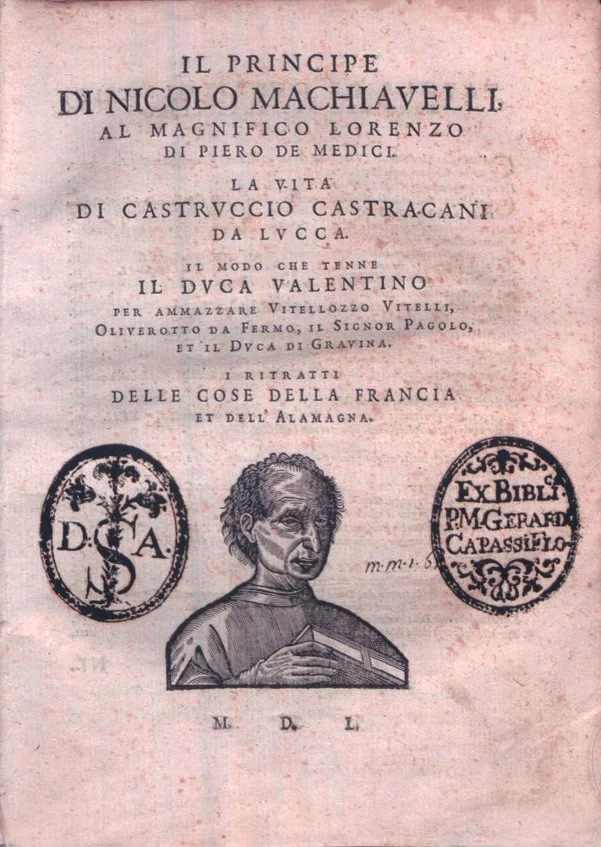Zack Polanski, The Green Party and Gramsci’s “Modern Prince”
The Green Party’s landmark decision to elect Zack Polanski as leader in September 2025 signals a pivotal moment.
This leadership shift opens up new potential for the party to embody Antonio Gramsci’s concept of the “modern prince”: a transformative force in politics, capable of reshaping society’s values, alliances and collective vision.
The Prince 2.0
Gramsci developed his idea of the modern prince while reflecting on Niccolò Machiavelli’s The Prince. Machiavelli imagined a singular leader who could seize and hold power through cunning, decisiveness and sometimes ruthlessness.
Gramsci, writing from prison in the 1930s, reinterpreted this model for the modern age: instead of one individual, the “prince” became a collective political organisation, a party or movement, that could build consent, nurture cultural change and unify diverse groups into a powerful historical force.
In this way, Gramsci transformed Machiavelli’s theory of power into a vision of democratic and progressive leadership.
Gramsci’s Concept of the Modern Prince
For Antonio Gramsci, the modern prince was not a single charismatic figure, but an organisational force able to build a broad and progressive movement able to challenge the existing worldview of the ruling class.
Unlike leadership that merely seizes power, the modern prince seeks to transform popular common sense, reshape cultural values and establish a new worldview.
It does this by:
Integrating diverse groups into a shared project.
Mobilising “organic intellectuals” (individuals who emerge from and are fundamentally connected to a specific social class and who express their community’s perspectives and values).
Forging alliances and reconciling differences.
Building a “historical bloc” (strategic alliance of social and class forces capable of producing a new hegemony a.k.a leadership) strong enough to challenge the ruling order.
In short, the modern prince organises across class and culture, combining consensus with bold leadership to spark universally resonant change.
The Green Party’s Historical Approach
Since its inception, the Green Party has been driven by environmental and social issues, with a deep commitment to internal democracy and decentralisation.
Its foundation has always been grassroots activism and member-led campaigns, but this focus sometimes limited its capacity to form broad electoral coalitions.
Moments of growth have often coincided with strong, unifying leadership, though attempts at centralisation have also produced internal friction. The balance between local activism and national strategy has remained a persistent challenge.
Zack Polanski’s Leadership: A Gramscian Moment
With Zack Polanski at the helm, the Green Party may now be entering a Gramscian moment.
Polanski has promised an “eco-populist” vision: one that pairs bold, clear communication with deep substance, and connects climate action directly to economic and social justice.
Key elements of his approach reflect the ethos of the modern prince:
Seeking mass membership and broader appeal.
Building alliances, even with emerging left parties.
Advocating for wealth taxes and redistribution.
Linking environmental action with racial and social justice.
Refusing to isolate the party, instead forging a collective will that transcends narrow bases of support.
In Gramsci’s terms, Polanski is positioning the Greens as a movement-builder, one that can unify disparate struggles into a shared, national-popular project.
What the Green Party Must Do Next
If the Green Party is to fully embody the role of the modern prince before the next general election, it will need to:
Cement its eco-populist stance as both practical and visionary, framing climate solutions as inseparable from economic and social transformation.
Forge alliances across the progressive spectrum especially among those disillusioned by Labour, to create a broad historical bloc (strategic alliance of social and class forces).
Lead in civil society as well as parliament mobilising popular common sense and cultivating organic intellectuals (individuals who are aware of and can effectively articulate class dynamics) both inside and outside the party.
Balance bold leadership with grassroots pluralism uniting diverse communities and movements under a shared purpose.
A Green Party for the Future
If Zack Polanski can steer the Greens toward Gramsci’s vision of the modern prince, the party could move to the very centre of UK politics and it appears that Polanski is doing just that. By becoming more than just a voice for the environment, under Polanski’s leadership the Green party is becoming an organising force for a new, inclusive and sustainable political era.





